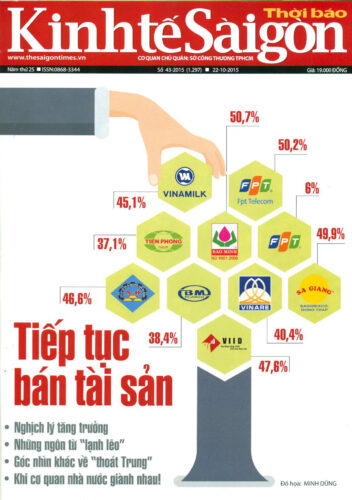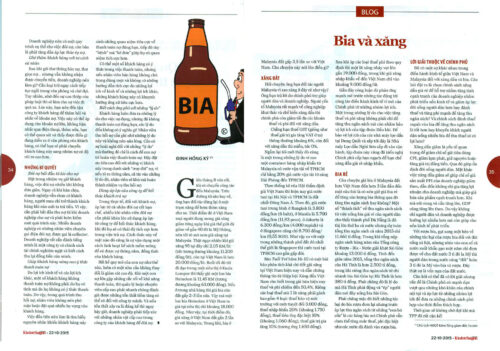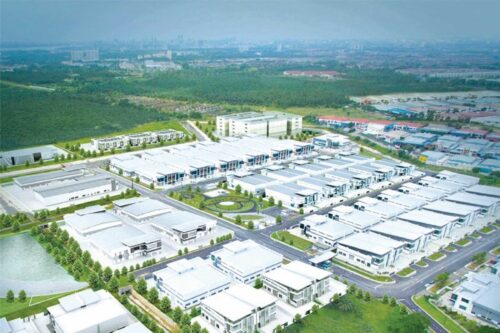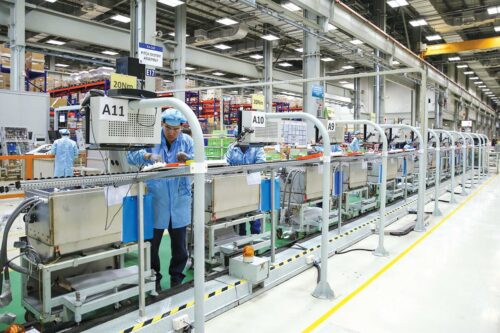Article by Mr. Dinh Hong Ky, published in Saigon Economic Times on October 22, 2015. Surprisingly, the price of 95-grade gasoline here is only 2.05 RM/liter (equivalent to about 11,200 VND/liter), while in Vietnam it is more than 20,000 VND/liter. That evening, I walked around a supermarket in Kuala Lumpur and saw that a can of Heineken beer cost 11.45 RM (equivalent to about 63,000 VND). If you were in a restaurant, the price of beer would be 2-3 times more expensive. Yet a can of Heineken beer in Vietnam costs only about 18,000 VND at the supermarket. Thus, at that time, the price of gasoline in Vietnam was nearly 2 times more expensive than in Malaysia. Meanwhile, beer in Malaysia was 3.5 times more expensive than in Vietnam. What does this story tell us?
Surprisingly, the price of 95-grade gasoline here is only RM2.05/liter (equivalent to about VND11,200/liter), while in Vietnam it is more than VND20,000/liter. That evening, I walked around a supermarket in Kuala Lumpur and saw that a can of Heineken beer cost RM11.45 (equivalent to about VND63,000). If you were in a restaurant, the price of beer would be 2-3 times more expensive. Yet a can of Heineken beer in Vietnam costs only about VND18,000 at the supermarket. Thus, at that time, the price of gasoline in Vietnam was nearly 2 times more expensive than in Malaysia. Meanwhile, beer in Malaysia was 3.5 times more expensive than in Vietnam. What does this story tell us?


Gasoline is expensive
I asked my Malaysian partner why gasoline is so cheap here. He replied that the government supports people and businesses. In addition to the fact that Malaysia is very strong in the petroleum exploitation and processing industry, the government also minimizes taxes and fees on gasoline. For example, GST (similar to VAT in our country) is usually around 6%, while gasoline is exempted, meaning 0%.
Thinking back, I realized that this is also one of the reasons why a container of imported goods from Malaysia has a transportation fee to Ho Chi Minh City that is only 20% of the transportation fee from Hai Phong port to Ho Chi Minh City.
According to statistics from the Vietnam Valuation Association, taxi fares in Hanoi and Ho Chi Minh City are currently the most expensive in Southeast Asia. Accordingly, the average taxi fare in Bangkok is 3,800 VND/km (6 baht), in Manila it is 5,700 VND/km (11.93 pesos), in Jakarta it is 6,300 VND/km (4,000 rupiah) and in Singapore it is only 8,700 VND/km (0.55 SGD). Thus, compared to one of the most expensive cities in the world, Singapore, the taxi fare in Ho Chi Minh City is almost twice as high.
On October 16, Tuoi Tre Newspaper published an article analyzing in detail the current gasoline price in Vietnam and cited information from the Vietnam Petroleum Association stating that taxes and fees account for 50.4% of the current selling price. The taxes that 1 liter of gasoline must bear include 4 types: environmental protection tax with an absolute rate of 3,000 VND, import tax of 20% (about 1,750 VND), special consumption tax of 10% (about 1,060 VND), value added tax of 10% (equivalent to 1,650 VND). After applying the prescribed taxes and fees, a liter of gasoline jumped to nearly 19,000 VND, while the price of imported gasoline to Vietnam was only about 9,000 VND/liter.
Recently, public opinion has reacted strongly to the impacts on the Government’s macroeconomic management from interest groups. One of the reasons for increasing gasoline taxes and fees is not only to increase budget revenue but also to protect the interests of the Oil and Gas Group. To protect the interests of the Dung Quat refineries and the upcoming Nghi Son Refinery, the group has also proposed that the Government issue quotas to limit the import of cheap gasoline and oil.
Cheap beer
The story of beer prices in Malaysia being more than 3 times more expensive than in Vietnam has led to the question of whether we should keep beer prices cheap to increase beer production, thereby increasing budget revenue or not? Some “achievements” in budget revenue from people drinking cheap beer show that Da Nang city is the third largest city in the country, but the total estimated budget revenue for the whole year of 2015 is only 11,661 billion VND. Meanwhile, the total annual budget contribution of Saigon Beer – Alcohol – Beverage Corporation is about 13,000 billion VND. As of mid-2015, Ha Tinh’s total budget revenue was more than 2,500 billion VND, while the budget revenue from the Saigon Beer branch in Ha Tinh alone was more than 380 billion VND. Is that the reason why Ha Tinh launched and “forced” people here to drink Saigon beer?
Is it true that despite knowing the harmful effects of beer and alcohol, the Government has not been able to increase taxes and fees, especially as other countries have imposed on alcohol and beer, due to the pressure of collecting budget from “cash cows” such as beer companies?
The answer belongs to the Government
There is a difference in economic management between Vietnam and Malaysia regarding gasoline and beer. The question is whether to choose a policy of cheap gasoline to support businesses to increase competitiveness in order to develop the economy and reduce pressure on people’s lives or to impose taxes and increase fees to increase budget revenue? And is it better to impose a strong tax on beer to increase budget revenue or is it more beneficial to encourage people to drink more beer to collect taxes?
A decrease in gasoline and oil is an important factor in reducing the CPI, reducing inflation, maintaining or increasing the value of money. Thereby helping to stabilize people’s lives. On the other hand, the decrease in gasoline will help businesses’ PPI decrease, leading to not only increased profits for businesses but also more competitive product prices. When supply and demand increase, GDP also increases. Therefore, not only people and businesses benefit more but also help the economy develop.
Regarding alcohol, putting aside the harmful effects of alcohol on social life, but looking at the figure of the whole country exporting rice in a year, it only brings the country 3 billion USD, but the people in the country also “burn” 3 billion USD on beer and alcohol. This is truly a problem for the country.
The question may have been answered, but the problem is whether the Government has the courage to overcome its own difficulties and pressure from interest groups to come up with appropriate policies at the right time.
Time will not wait when the TPP is so close!
Dinh Hong Ky


